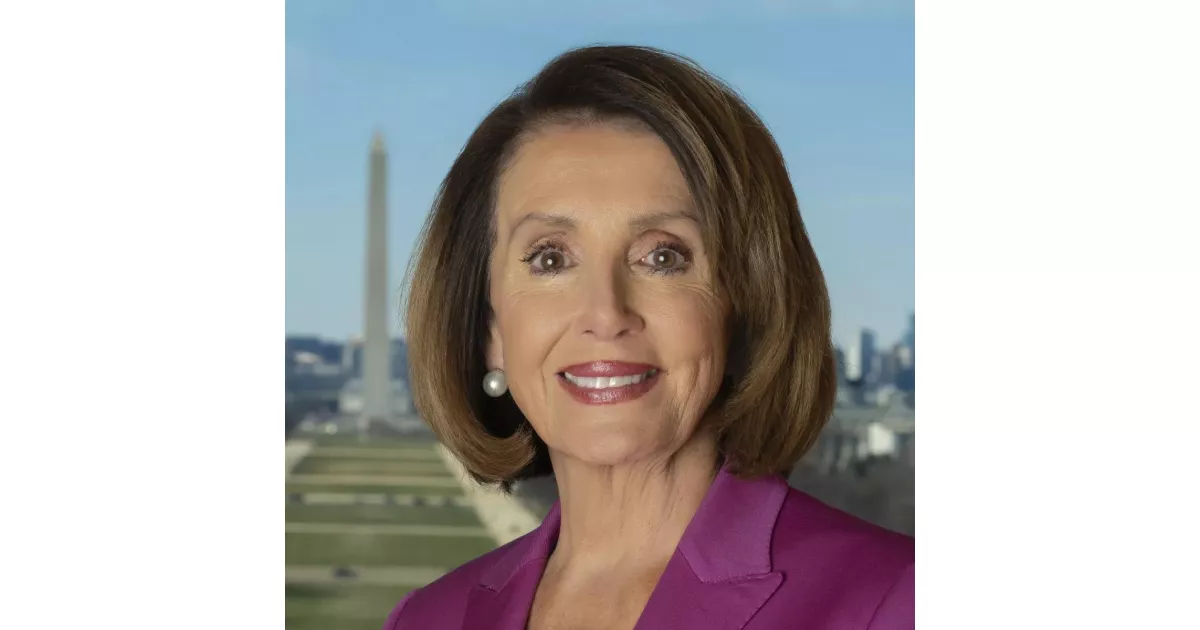Discover the defining moments in the early life of Nancy Pelosi. From birth to education, explore key events.
Nancy Pelosi is a prominent American politician, notably serving as the 52nd Speaker of the House of Representatives twice (2007-2011 and 2019-2023). As a Democrat representing California's 11th district since 1987, she made history as the first female Speaker and the first woman to lead a major party in Congress, heading House Democrats for two decades. Her long tenure as a House leader is second only to Sam Rayburn. She remains a significant figure in American politics and the dean of California's congressional delegation.
1912: Pelosi's mother emigrates to the U.S.
In 1912, Nancy Pelosi's mother, Annunciata M. "Nancy" D'Alesandro (née Lombardi), emigrated to the U.S. from Fornelli, Southern Italy.
1915: Killing of Armenians by Ottoman Turks
In mid-October 2007, Pelosi pledged to bring a resolution labeling the 1915 killing of Armenians by Ottoman Turks as genocide to a vote, following its passage in the House Foreign Affairs Committee.
March 26, 1940: Nancy Pelosi's Birth
On March 26, 1940, Nancy Patricia Pelosi, née D'Alesandro, was born.
1958: Pelosi Graduates from the Institute of Notre Dame
In 1958, Nancy Pelosi graduated from the Institute of Notre Dame, an all-girls Catholic high school in Baltimore.
1962: Pelosi Graduates from Trinity College
In 1962, Nancy Pelosi graduated from Trinity College, Washington.
September 7, 1963: Nancy D'Alesandro Marries Paul Francis Pelosi
On September 7, 1963, Nancy D'Alesandro married Paul Francis Pelosi in Baltimore at the Cathedral of Mary Our Queen.
1964: Federal Civil Rights Act of 1964 referenced
Pelosi supports the Equality Act, a bill that would expand the federal Civil Rights Act of 1964 to ban discrimination based on sexual orientation and gender identity.
1967: Thomas D'Alesandro III becomes Mayor of Baltimore
In 1967, Nancy Pelosi's brother, Thomas D'Alesandro III, a Democrat, was elected Baltimore City Council president and later became mayor, serving until 1971.
1969: Pelosis Move to San Francisco
In 1969, Nancy and Paul Pelosi moved to San Francisco, where Paul's brother, Ronald Pelosi, was a member of the City and County of San Francisco's Board of Supervisors.
1971: End of Thomas D'Alesandro III's mayoral term
In 1971, the term of Nancy Pelosi's brother, Thomas D'Alesandro III, as mayor of Baltimore came to an end.
1996: Pelosi votes against Defense of Marriage Act
In 1996, Pelosi voted against the Defense of Marriage Act.
2000: Alexandra Pelosi Covers Republican Presidential Campaigns
In 2000, Alexandra Pelosi, a journalist and daughter of Nancy and Paul Pelosi, covered the Republican presidential campaigns and made a film, Journeys with George, about the experience.
2001: Pelosi votes for USA Patriot Act
In 2001, Pelosi voted in favor of the USA Patriot Act.
2004: Pelosi votes against Federal Marriage Amendment
In 2004, Pelosi voted against the proposed Federal Marriage Amendment, which aimed to define marriage as between one man and one woman.
2005: Pelosi votes against reauthorization of Patriot Act provisions
In 2005, Pelosi voted against the reauthorization of certain provisions of the USA Patriot Act.
2006: Pelosi votes against Secure Fence Act
In 2006, Pelosi voted against the Secure Fence Act.
2006: Pelosi votes against Federal Marriage Amendment
In 2006, Pelosi voted against the proposed Federal Marriage Amendment, which aimed to define marriage as between one man and one woman.
2007: Christine Pelosi Publishes "Campaign Boot Camp"
In 2007, Christine Pelosi, daughter of Nancy and Paul Pelosi, published a book, Campaign Boot Camp: Basic Training for Future Leaders.
2008: Rebuke by Archbishop Donald Wuerl
In 2008, Nancy Pelosi was rebuked by Archbishop Donald Wuerl of Washington, D.C., for comments she made concerning Church teaching on abortion and when human life begins.
2008: Pelosi Welcomes overturning of ban on same-sex marriage in California
In 2008, when the Supreme Court of California overturned the state's ban on marriage between same-sex couples, Pelosi released a statement welcoming the "historic decision".
February 2009: Meeting with Archbishop and Pope Benedict XVI
In February 2009, Nancy Pelosi met with Archbishop George Hugh Niederauer of San Francisco and with Pope Benedict XVI regarding the controversy surrounding her statements on abortion.
2009: Pelosi's Net Worth Estimated at $58 Million
In 2009, OpenSecrets estimated Pelosi's net worth at $58 million, making her the 13th-wealthiest member of Congress.
2012: Pelosi's Net Worth Reported at $26.4 Million
Business Insider reported that Pelosi's net worth was $26.4 million in 2012, making her the 13th-richest member of Congress.
2012: Pelosi discusses her Catholic faith and LGBT rights
In 2012, Pelosi stated that her position on LGBT rights, including same-sex marriage, is rooted in her Catholic faith, which compels her to oppose discrimination, though it contradicts Catholic doctrine.
2014: Pelosi supports NSA surveillance program
As of 2014, Nancy Pelosi supported the Bush/Obama NSA surveillance program PRISM.
2014: Pelosi's Net Worth Estimated at $101 Million
In 2014, OpenSecrets reported that Pelosi's net worth had almost doubled to about $101 million, making her the 8th-wealthiest member of Congress.
2016: Pelosi's Financial Disclosure Report
Pelosi's 2016 financial disclosure report lists among her assets a combined home and vineyard in St. Helena, California, two commercial buildings in San Francisco, and a townhouse in Loomis, California.
February 2018: Pelosi Breaks House Speech Record
In February 2018, Pelosi broke the record for the longest House speech, speaking for over eight hours to recount stories from DREAMers. She was objecting to a budget deal that would raise spending caps without addressing the future of DACA recipients, who were at risk of deportation by the Trump administration.
2018: Pelosi's Net Worth Estimated at $16.0 Million
In 2018, Roll Call estimated Pelosi's net worth at $16.0 million, making her the 30th-wealthiest member of Congress.
2019: Pelosi speaks in Congress in favor of Equality Act
In 2019, Pelosi spoke in Congress in favor of the Equality Act and called for ending discrimination against LGBT people. She also opposed Trump's transgender military ban.
January 2021: Pelosi's San Francisco Home Vandalized
In January 2021, Pelosi's San Francisco home was vandalized with graffiti, messages of "[c]ancel rent", fake blood, and a severed pig's head.
June 2021: Pelosi's husband purchases stocks in tech companies
In May and June 2021, Pelosi's husband purchased stocks in tech companies such as Alphabet, Amazon, and Apple, netting a gain of $5.3 million. This occurred even while Speaker Pelosi was working on anti-trust legislation to better regulate the tech industry.
April 7, 2022: Cordileone Communicates Concerns to Pelosi
On April 7, 2022, Archbishop Salvatore Cordileone communicated his concerns to Nancy Pelosi, regarding her support for abortion rights, warning her that if she did not publicly repudiate her advocacy or refrain from referring to her Catholic faith in public and receiving Holy Communion, he would have no choice but to declare that she is not to be admitted to Holy Communion.
May 20, 2022: Pelosi Barred from Receiving Holy Communion in San Francisco
On May 20, 2022, Salvatore Cordileone, archbishop of San Francisco, announced that Pelosi would be barred from receiving Holy Communion because of her support of pro-choice abortion policies.
June 29, 2022: Pelosi Receives Communion at Papal Mass
On June 29, 2022, Pelosi received Communion at a Papal Mass presided over by Pope Francis in Rome at St. Peter's Basilica.
October 2022: Paul Pelosi Attacked at Home
In October 2022, while Pelosi was in Washington, D.C., an intruder entered her San Francisco home demanding to know her whereabouts, and attacked her husband, Paul Pelosi, with a hammer. The assailant, David DePape, was convicted on federal and state charges and sentenced to life without parole.
December 2024: Pelosi Hospitalized After Hip Fracture
In December 2024, Pelosi was hospitalized after fracturing her hip while falling down stairs in high heels during an official trip to Luxembourg, where she was part of a bipartisan delegation to observe the 80th anniversary of the Battle of the Bulge. On December 14, she underwent hip replacement surgery at Landstuhl Regional Medical Center, a U.S. military hospital in Germany.
Mentioned in this timeline

Vladimir Vladimirovich Putin is a Russian politician and former intelligence...
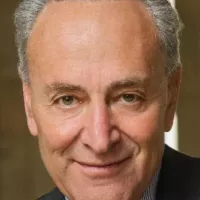
Chuck Schumer is the senior United States Senator from New...
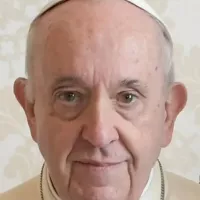
Pope Francis served as the head of the Catholic Church...

Barack Obama the th U S President - was the...
Ukraine is a country in Eastern Europe the second-largest on...

Hillary Diane Rodham Clinton is a prominent American politician lawyer...
Trending
43 minutes ago Pokemon Celebrates 30 Years: A Cultural Phenomenon with Multimillion-Dollar Cards

43 minutes ago Daylight Saving Time 2026: Prepare to set your clocks forward and lose sleep.

43 minutes ago Indiana Investigates CenterPoint Energy Amid Bill Concerns and New Utility Law.
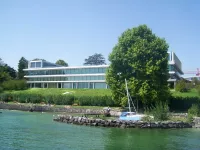
44 minutes ago Galatasaray's Champions League opponent revealed; Liverpool legend comments on Juventus match; Real Madrid faces Man City.

3 hours ago Google Maps to fully function in South Korea after data agreement.
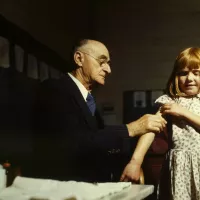
4 hours ago CDC Panel to Discuss COVID-19 Vaccine Injuries Following RFK Jr.'s Meeting
Popular

Jesse Jackson is an American civil rights activist politician and...

Barack Obama the th U S President - was the...

Susan Rice is an American diplomat and public official prominent...

XXXTentacion born Jahseh Dwayne Ricardo Onfroy was a controversial yet...

Michael Joseph Jackson the King of Pop was a highly...

Kashyap Pramod Patel is an American lawyer who became the...
